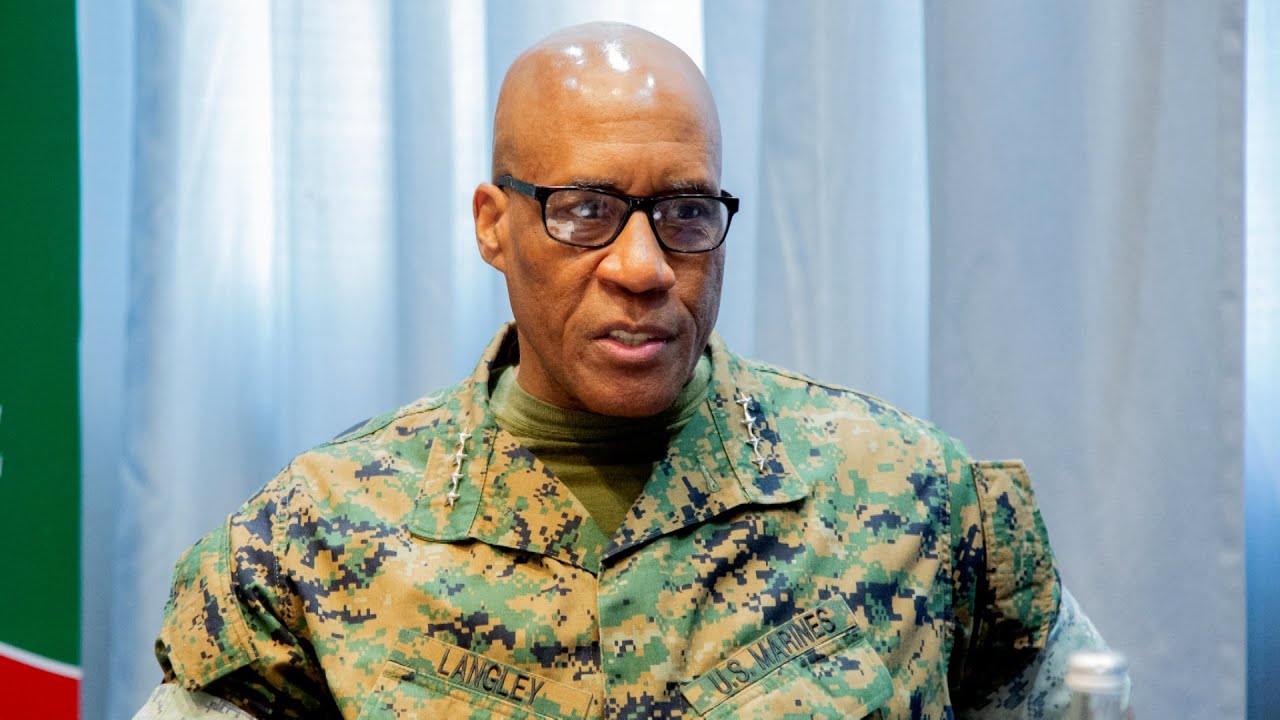
Langley roots for African unity in confronting shared threats » Capital News
NAIROBI, Kenya, May 28 — US Africa Command (AFRICOM) Commander General Michael Langley has called on African nations to deepen cooperation in the face of rising threats across the continent, urging a united approach to security and stability.
Speaking during the 2025 African Chiefs of Defence Conference in Nairobi on Wednesday, General Langley emphasized the importance of maximizing collective capabilities to address a wide range of challenges — from terrorism and armed conflict to humanitarian crises and regional instability.
The annual forum, being held on the African continent for only the second time, has brought together senior military leaders from 38 African partner and allied nations.
Langley noted that current security challenges continue to strain the resources of militaries and governments, reinforcing the need for enhanced collaboration.
“Threats are not constrained by boundaries — and they are evolving,” Langley said.
“We are seeing security concerns rooted in displacement, economic hardship, local clan conflicts, and open warfare, like what we are witnessing in Sudan. None of us can address these challenges alone.”
This year’s conference builds on the themes from the 2024 gathering in Botswana, which focused on expanding cooperation and shared values.
Langley reiterated AFRICOM’s commitment to a partner-led approach in addressing Africa’s security landscape.
“I said last year that this forum belongs in Africa, and today, we continue that tradition,” he said.
“These engagements demonstrate that peace through strength begins with our alliances.”
Joint military execises
Drawing from recent experience in Africa, Langley highlighted the value of joint military exercises such as FLINTLOCK and African Lion, both of which saw strong participation from African forces.
He also reflected on his recent visit to Côte d’Ivoire for FLINTLOCK and the significance of shared history, recalling a tribute he paid to Senegalese troops who fought in World War I.
“Our training, operations, and mutual support show the world that unity of effort leads to real results,” he added.
During the 2025 conference, participants will tackle pressing topics including counter-terrorism, civil-military relations, interagency coordination, and future force development.
Langley noted that these discussions are not happening in isolation, referencing his recent engagements with African and European leaders at the Munich Security Conference.
The AFRICOM chief pointed out that while the ongoing war in Ukraine tends to dominate global headlines, Africa remains a key area of strategic focus.
“Africa remains a focus for many. NATO’s Southern Neighborhood is paying attention. I had a productive conversation with Javier Colomina, who shared efforts being made in places like Mauritania,” Langley said.
Langley further noted that the majority of the security burden in Africa falls to Africans themselves.
While acknowledging the challenges faced by African militaries and governments in equipping their security forces, Langley disclosed that the US is reviewing its operations in Africa to ensure the continued effectiveness of its partnerships.
“Our leadership is conducting a comprehensive review to improve alignment with US policy and streamline effectiveness,” he said.
He reiterated the enduring strength of AFRICOM’s partnerships in Africa, stating that the organization stands ready to support its partners whenever called upon.
“AFRICOM hears you. The US hears you. And I remain committed to our collaboration,” Langley affirmed.
“Together, we will continue building toward a secure, stable, and prosperous future.”